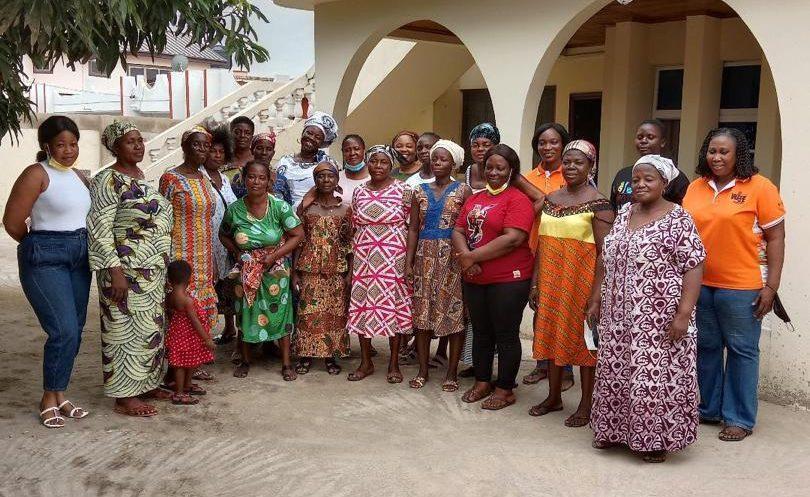Africa-Press – Ghana. In a small fishing community in rural Accra, four-year-old Adoley was a lively child, her voice echoing through the compound as she sang rhymes and played with other children.
Her mother, Naa Atswei, sold smoked fish from their home, making a modest living to support her only daughter. Life was challenging but filled with warmth and hope.
That hope was shattered one afternoon.
Adoley, full of excitement, knocked on the door of her neighbour, Nii Otublohu, eager to play with his children.
Otublohu, a 42-year-old fisherman, had just returned from sea. In the silence of his house, he lured Adoley into his room with the promise of cartoons, locked the door behind her, and committed an unspeakable act of defilement.
When Adoley stumbled towards her mother, blood trailing down her leg, Naa Atswei’s world collapsed.
Overwhelmed by fear and rage, Naa Atswei reported the incident to local police, who swiftly transferred the case to the Domestic Violence and Victim Support Unit (DOVVSU) of the Ghana Police Service.
Recognising the urgency and trauma involved, DOVVSU referred Adoley and her mother to The Women’s Initiative for Self-Empowerment (WISE), a frontline grantee of the KASA initiative.
While the perpetrator fled to sea, police tracked and arrested him upon his return.
Today, he is serving a 25-year prison sentence, but the true story of healing and transformation was only beginning.
WISE swiftly facilitated medical care and launched therapeutic interventions through a clinical psychologist.
Beyond immediate care, they laid the foundation for long-term recovery—emotionally, socially, and economically.
For Naa Atswei, whose livelihood was disrupted, WISE provided financial support to stabilise her business.
For little Adoley, the process of reclaiming childhood began—with counselling, play therapy, and community protection measures.
The KASA Initiative is designed to respond, restore, and rebuild lives fractured by sexual violence.
“You know the pain never leaves,” said Ms. Adwoa Bame, Executive Director at WISE. “But we can reduce the damage and help survivors live dignified lives. More importantly, we give them a voice.”
Under the KASA Initiative—meaning “speak” in Twi— survivors are not merely recipients of aid, but catalysts for change.
In safe and inclusive spaces, girls and women learn to recognise abuse, assert their rights, and support others. Some return as peer advocates, speaking boldly in communities once shrouded in silence and stigma.
In places like Dome Kwabenya, Oshie, Bortianor, and Tifa, WISE has helped challenge entrenched norms.
“When we first entered Tifa, the community often shielded perpetrators and blamed victims,” said Ms. Bame.
“Today, those same leaders refer cases to police instead of resolving them privately.”
WISE understood the need to include traditional and religious leaders—not as obstacles but as allies.
Over time, community entry meetings evolved into co-created solutions.
Crisis Response Teams, trained by WISE, now act as first responders, ensuring cases reach police or NGOs swiftly.
Embedded within the community, these teams build sustainable interventions and foster trust.
According to Ms. Bame, the KASA Initiative’s success lies not only in its reach but in its approach.
Rather than imposing external frameworks, WISE tailors methods to suit each community’s cultural and social context.
“We work with chiefs and existing local structures—languages, beliefs, and power systems—to disrupt harmful practices from within,” she said.
WISE also tackles root causes such as economic hardship, gender inequality, and lack of education, breaking the cycle of vulnerability and abuse.
WISE works collaboratively with schools, health facilities, the Ghana Police Service, and NGOs to create a comprehensive support system.
“Each partner brings unique expertise, ensuring survivors like Adoley are protected, healed, and empowered from multiple angles,” Ms. Bame noted.
Backed by the African Women’s Development Fund (AWDF) under the KASA Ending Sexual Violence in West Africa programme, WISE stands as a model for grassroots activism.
Under KASA, WISE is investing in capacity-building—training local teams, involving survivors in leadership roles, documenting best practices, and ensuring communities take ownership of the initiative.
“As funding cycles shift, these structures will remain—girls will still speak up, leaders will still act, and communities will still protect,” Ms. Bame stated.
Despite global commitments like Sustainable Development Goal 5.2, which aims to end all forms of violence against women and girls, a report by the Ghana Statistical Service reveals that 30 per cent of Ghanaian women have experienced sexual violence.
KASA asserts that sexual violence is a pervasive cultural issue rather than an isolated incident and urges all stakeholders to take decisive action to address it.
Source: Ghana News Agency
For More News And Analysis About Ghana Follow Africa-Press







